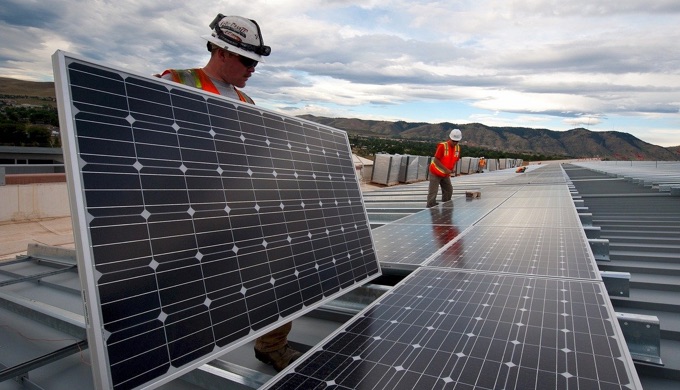India has called upon sunshine-abundant nations to join the International Solar Alliance in larger numbers to hasten the global energy transition from fossil fuels

India has made rapid strides in installing solar power in the country (Photo by Pixabay)
More nations should join the International Solar Alliance for a speedier transition away from burning fossil fuels that is driving climate change, India said at the annual UN climate summit being held in Madrid.
The alliance “must run faster because the need of the hour is that we must tap solar in a big way,” India’s environment minister Prakash Javadekar said on December 9. He was speaking at a ministerial meeting on solar power on the sidelines of the 25th session of Conference of Parties under the UN Framework Convention of Climate Change.
The International Solar Alliance (ISA) was launched at the 2015 Paris climate conference by Indian Prime Minister Narendra Modi and French President Francois Hollande. The goal of ISA is to install 1,000 GW of solar energy by 2030 and mobilise USD 1,000 billion to achieve the target. The purpose of ISA is not just reducing the global carbon footprint but to help the 121 member countries, mostly developing economies, with solar power solutions, and provide modern energy access to everybody.
Rapid expansion
Since its founding, 83 nations located between the Tropic of Cancer and Tropic of Capricorn have joined the alliance. ISA has launched five programmes to boost different sectors where solar technologies can be applied while reducing risks and addressing the financial challenges that developing and least developed countries face while adopting green power.
Its programme of solar agriculture pumps have received an enthusiastic response from various member countries. The ISA has aggregated the demand and has floated a tender that has already received four bids, the minister said. “I am sure that a best deal is on the cards and they will get it soon,” he said.
India has been aggressively promoting renewable energy domestically as well. In the recent past, the solar sector has emerged as a big player. “Five years ago, India had just 3 GW (of solar energy installations),” Javadekar said. “Today we have 33 GW of solar energy.”
“India is going to achieve 100 GW of solar energy by 2022. In the next three years, it will add 67 GW more of solar energy,” Javadekar said. This expansion has also driven solar tariffs down, making it competitive with conventional sources of electricity such as coal.
India seeks to help other emerging economies replicate its success. “All countries need to do it because the target of UNFCCC is to do away with use of all fossil fuels, not only coal,” Javadekar said in Madrid. “We (India) today have 37% energy capacity through renewables. We want to increase it because our energy demand is rising, so we have decided to have 40% of energy capacity through renewables.”
The meeting was also attended by Prime Minister of Fiji, Josaia Voreqe Bainimarama; Anand Kumar, secretary at India’s Ministry of New and Renewable Energy and Upendra Tripathy, Director General of ISA. “When we meet in Glasgow next year, I am sure there will be more progress in ISA,” Javadekar said.
